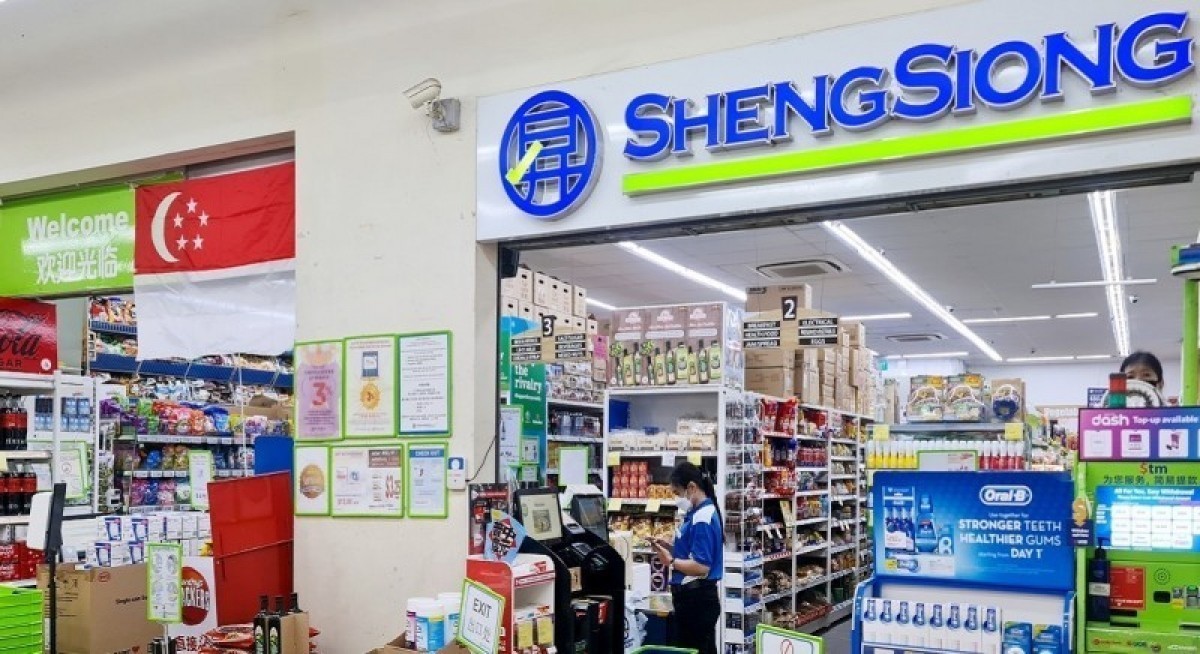On Sept 25, Sheng Siong announced that it had secured a lease from JTC to build a state-of-the-art distribution centre (DC), which when ready, will set the company for longer-term growth as it is designed to support at least 120 stores.
The total investment is estimated to be $520 million. In contrast, the company’s existing distribution centre has the capacity to optimally support around 70 stores and it is on track to have 85 stores by end of the year.
The scale and technology of the new DC are expected to enhance gross margins and operating efficiency over time, fully offsetting the increase in depreciation.
Beyond boosting capacity, the new DC extends the master lease to 2058, adding 19 years compared to the current facility, which expires in 2029. It also strengthens Sheng Siong’s ability to better compete with market leader NTUC FairPrice, which has upgraded its supply chain in recent years.
See also: StarHub’s weak FY2026 guidance leads DBS to review call while Morningstar flags overvaluation
This includes, most notably, a state-of-the-art fresh food distribution centre of about 750,000 sq ft completed in 2021 for over $23 million, and the signing of an agreement to add 30 autonomous vehicles to its distribution fleet in October.
The DBS analysts believe that Sheng Siong’s future store count growth will come from three different sources. First, in a discernible shift, Sheng Siong has expanded into malls within the CBD, no longer confined in the public housing heartlands.
With more new housing estates in the pipeline, they will be another key way for the company to expand its footprint.
See also: IFAST share price dips despite strong earnings 4QFY2025 announcement; DBS maintains ‘buy’ at $12
Last but not least, Sheng Siong is known to be keen to take over locations given up by other supermarkets.
The foray into the CBD has opened up new revenue streams. Following the recent in-store survey of Sheng Siong’s new CBD outlet at The Cathay along Orchard Road, the DBS team noted that this new CBD outlet provides an expanded ready-to-eat range tailored to office workers, increased sponsored shelving that can drive incremental trade income and a high proportion of self-checkout lanes to optimise labour productivity. “Mid-weekday footfall appeared healthy for The Cathay, despite strong competition from the better situated Plaza Singapura nearby,” observes the DBS team.
Based on a comprehensive review of HDB site plans for upcoming BTO flats, the team has identified 26 supermarket tenders over the next four years. Beyond the numbers, the mapped locations also show limited nearby competition, suggesting attractive unit economics.
Drawing on the past five years, DBS estimated Sheng Siong’s tender win rate at about 67%, which implies securing roughly 17 of the 26 sites, or about four stores a year, in line with the company’s target of three to five annually.
At the same time, competitors such as U Stars and Hao Mart suffered significant losses and could relinquish more stores in coming years as they exit the market. Based on their latest published financials, both companies are generating negative cash flow (including lease liability payments) and are sustained by fresh shareholder injections.
According to DBS, U Stars reported a $25 million loss and $16 million negative operating cash flow while Hao Mart similarly reported a $32 million loss and $9 million negative operating cash flow. Together, they operate 28 HDB stores and 2 private outlets, which could become takeover opportunities for Sheng Siong.
Overall, DBS predicts that there could be up to 54 HDB store opportunities (26 stores in new BTOs and 28 from competitors) and 2 private outlet opportunities in the coming years.
As at 11.45am, shares in Sheng Siong are trading 4 cents higher, or 1.83% up at $2.22.




